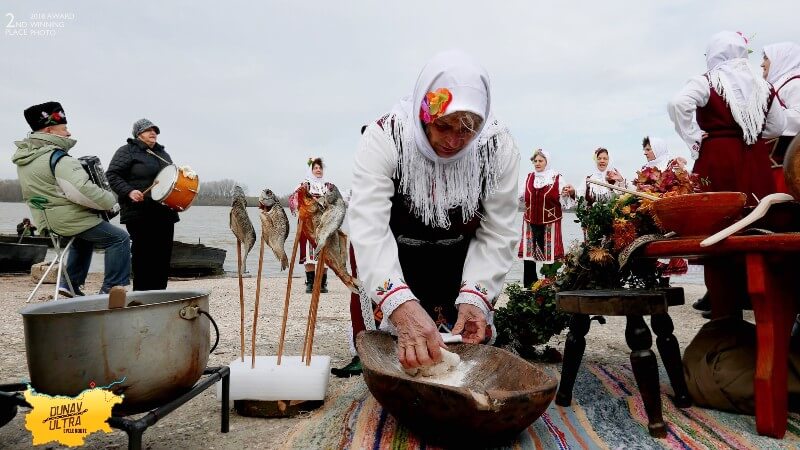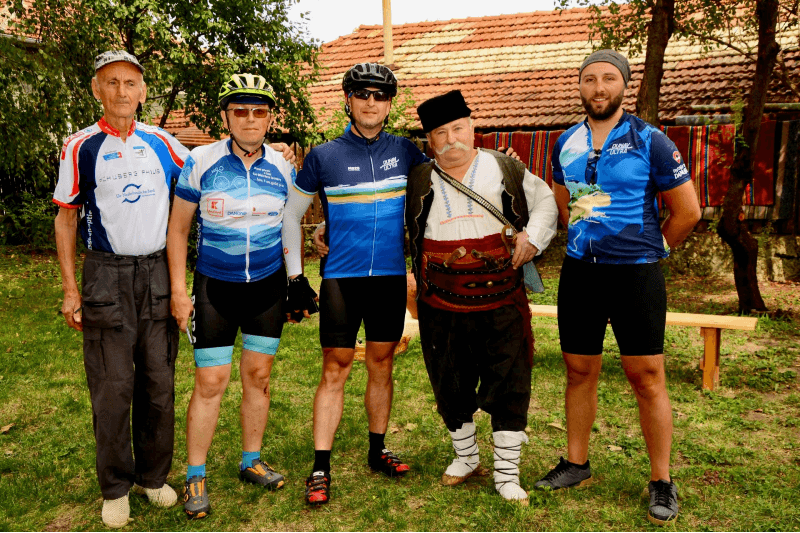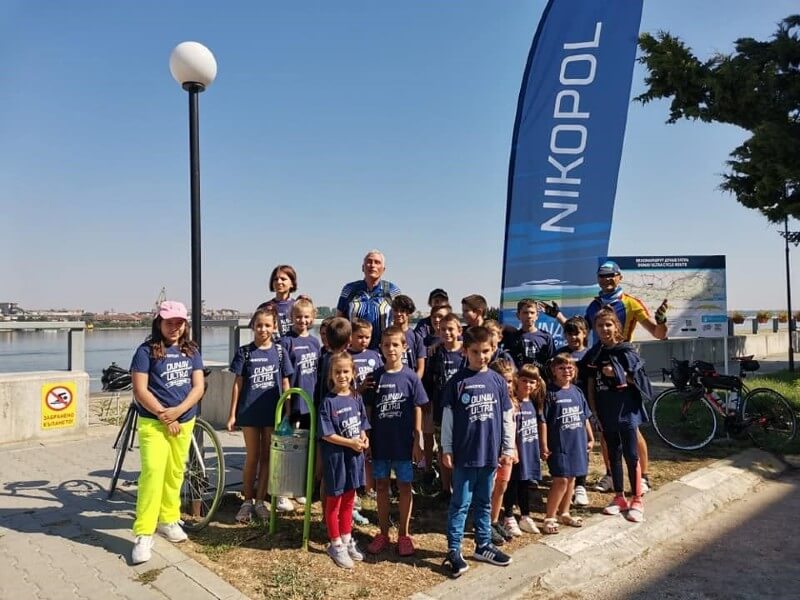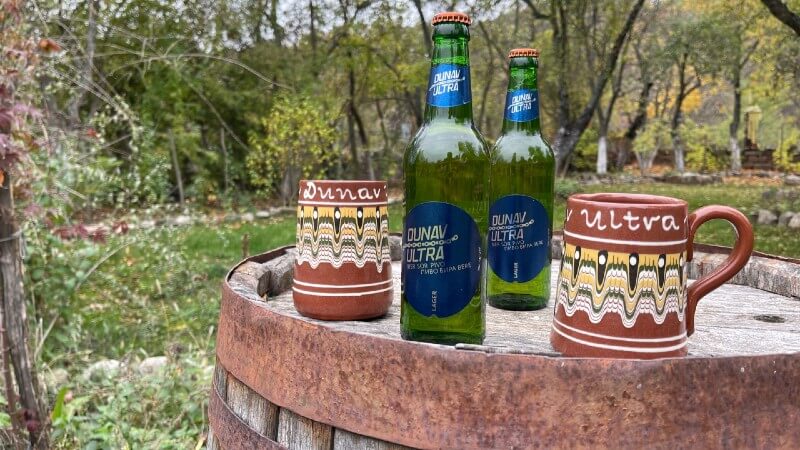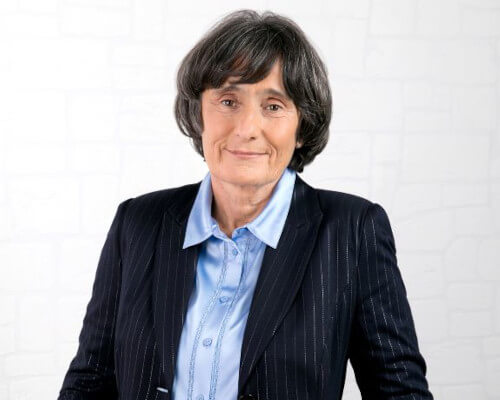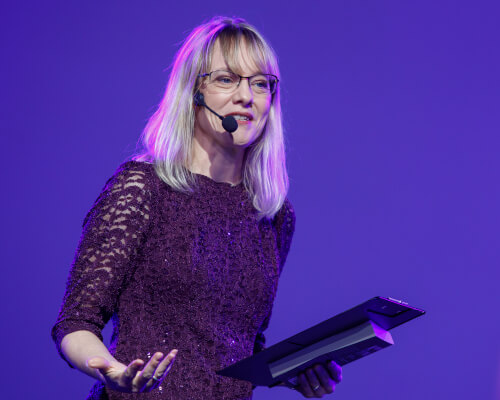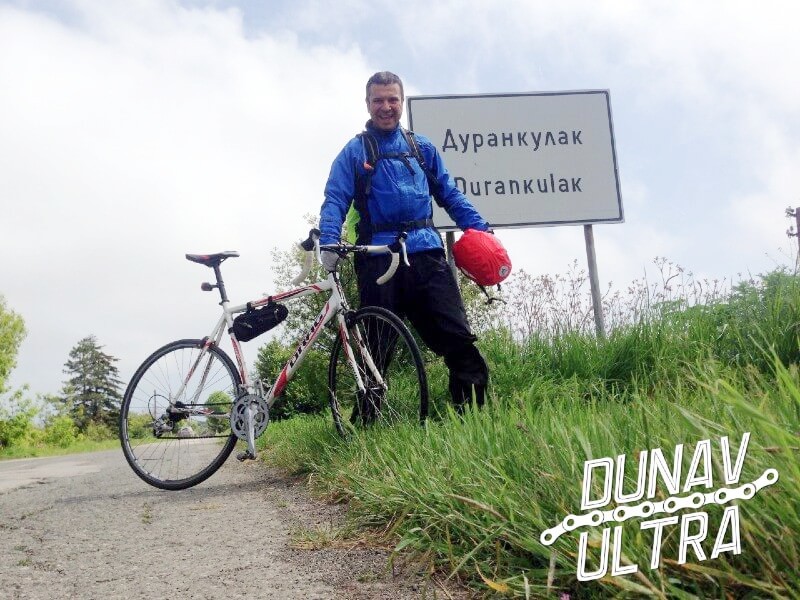
Until recently there was little telling the curious traveler that north of the Bulgarian village of Gigen, on the right bank of the Danube River, lies a Roman city. And not just any Roman city: Ulpia Oescus was one of the main centers in the ancient Roman province of Moesia. It covered 70 acres and its forum was one of the empire’s most elaborate, featuring four temples to the ancient gods. It was here that, in the fourth century AD, the empire acquired its longest river bridge (and probably one of the longest of all time) — Constantine’s Bridge — inaugurated by Emperor Constantine the Great himself.
Its glorious past notwithstanding, after its devastation by barbarian attacks in the sixth century, the city fell into oblivion.
Today Ulpia Oescus is on the map again — part of Dunav Ultra, a 460-mile cycling route connecting Bulgaria’s northwesternmost point with the Black Sea coast and running along the length of the Danube River. (Dunav is the Bulgarian for Danube.) Route developer Boris Begamov “discovered” the ancient city while exploring the area for the Dunav Ultra cycling adventure and was captivated. Here was a spot that had the potential to be a top world heritage site, but wasn’t on account of poor promotion! As visitors to the village of Gigen have increased through the cycling challenge so has interest in the “forgotten city.”
The village of Krushovene next door does not have Roman ruins, but its residents are proud that their birthplace is the first village in Bulgaria with planned streets. This year they showed that they are first in hospitality as well. Honored to have Bulgaria’s #1 bicycle route pass through their village, its residents cleaned the public square — “so our guests wouldn’t think poorly of us” — and for days welcomed participants in Dunav Ultra’s annual September challenge with food and water. Wearing traditional attire, locals happily regaled visitors with stories from the region.
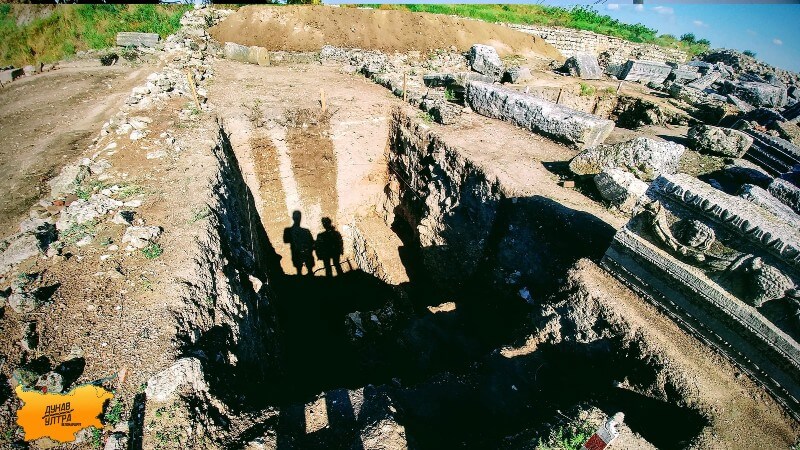
Further west, near Oryahovo, Leskovets natives have been welcoming travelers for centuries. The site of the Danubian village was a well-known resting station on Via Istrum, the main Roman road connecting Belgrade and Constantinople, while today it is part of Dunav Ultra. Cyclists doing the route and other visitors can now stop and rest in the area around an old water fountain that locals transformed into a wonderful recreation zone with benches, a gazebo, a potable water source, and tongue-in-cheek art for the cyclists’ amusement.
Slowly but steadily communities along the Danube are waking up to new possibilities, and Dunav Ultra and the tireless Boris deserve at least some of the credit for that. Since 2014, the serial entrepreneur has dedicated most of his time to exploring, marking, and promoting the route as well as the 110 places it traverses. Initially, Dunav Ultra was a personal endurance challenge for Boris, reflected in the “ultra” part of its name: his goal was to cover the distance of nearly 460 miles in under 48 hours. The more he got to know the side roads and communities along the river, however, the more clearly he saw the region’s enormous tourism potential.
“Although I launched the annual cycling challenge in 2014, it wasn’t until 2017 that I began imagining Dunav Ultra as a tourism route. Until then I thought of it as a cycling track, not a tourist product,” Boris says. Gradually, though, he realized that “there is something really big here, much bigger than the endurance challenge.”
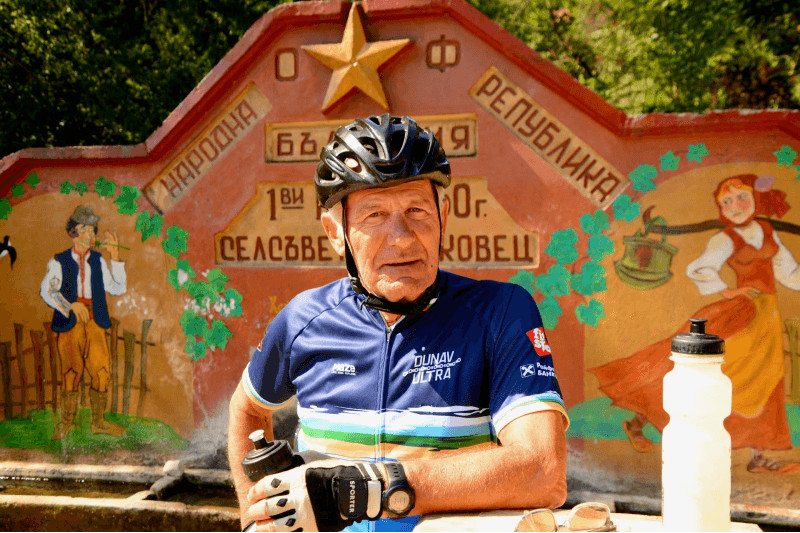
Alongside world heritage sites such as the Baba Vida fortress in Vidin, the Belene island reserve, Ruse’s imposing Neoclassical theater building and Freedom Square, and the rock-hewn churches of Ivanovo and Basarbovo, the region possesses an authentic character that would be irresistible for Bulgarian and foreign visitors alike.
“You won’t see castles here the way you would in the Loire Valley in France, nor the neatly trimmed bike lanes of Austria. The Bulgarian banks of the Danube are hilly, shabby in an authentically Bulgarian fashion, and wild on account of geography and economic processes. But it’s the whole environment that cyclists find attractive: the chirping of birds, pheasants jumping out on the road, the sunrises and sunsets, which are unique in Bulgaria, people’s faces, the horse-drawn carts, the weather-worn walls, the rural gardens full of vegetables, the fecund fruit trees, the grapevines creeping along the fence…”
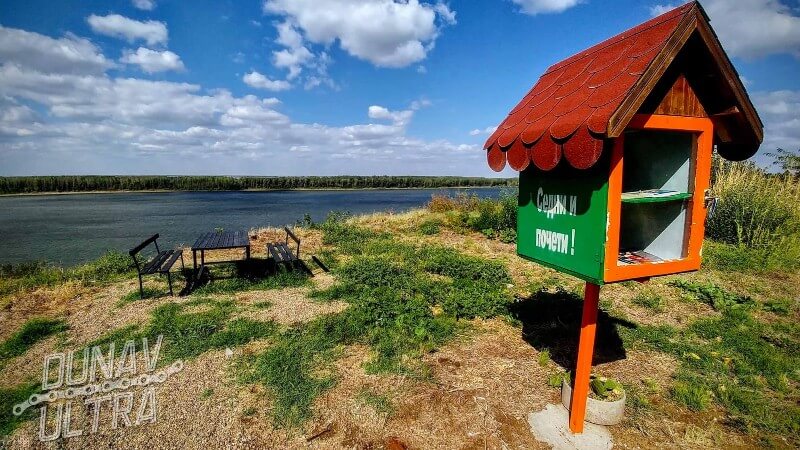
It’s not uncommon for Boris to wax lyrical about the Danube, but it’s only because he really believes in the region’s potential. This is why he has made it his mission to unlock that potential, whether that means convincing locals of the many opportunities it represents or shouting about it to the world.
Ever since his teenage years Boris has been blazing trails and seeing opportunities where others see obstacles. Hungry for international experience, he traveled abroad in the early 1990s to Malta, one of the few countries that would admit Bulgarians back then. At 25, he opened one of the first private restaurants in Bulgaria, before there was even demand for new culinary experiences. As cofounder of the first performance venue for independent music in Sofia, O!Shipka, he helped shape Bulgaria’s nascent music management industry. More than 800 music groups took their first steps at O!Shipka, audience favorite Ostava among them. At the dawn of the digital age, Boris launched an online music TV channel and later had a digital marketing and software business. “I feel comfortable when I get out of my comfort zone. When I am looking for innovation, for the next new thing, for the next challenge, I always go all in,” Boris says.
After two decades of scaling business heights and pursuing new trends, the hectic pace became just a little too much for him. In looking for change, he encountered endurance cycling in the 2010s. After touring almost the entire country by bicycle, he trained his sights north — on the Danube — and ever since his focus has been on the river and its communities.
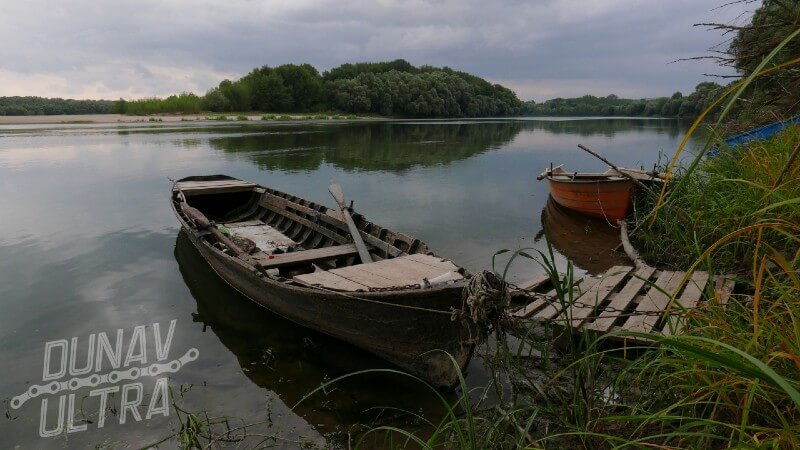
“The Danube is uncharted territory. No one knows anything about it.” This is how Boris explains the region’s initial attraction for him. Despite its one-time economic and strategic role, with the decline of river transport over the twentieth century, the importance of the Danube and its communities diminished as well. The economic crises of the last few decades hit the Bulgarian North especially hard. In light of that, Boris’s interest in the European Union’s poorest region often meets with bewilderment — among locals and friends alike. Even so, he is undeterred.
“I have always known there is something there” is the thought that kept Boris going over the years.
Dunav Ultra takes up his every spare minute as well as many personal resources. “In the summer my friends go to the seaside while I am somewhere along the Danube — exploring an area, meeting fishermen, discovering new trails, looking for partners. I give it my all,” he says. His experience as entrepreneur has helped him keep up with the pace, but Dunav Ultra is far from being just a business. “I would never have gone as far as I have, I wouldn’t have reached the variety of partners I have if it hadn’t been a cause. Working on a platform like this is an incredible opportunity,” Boris says.
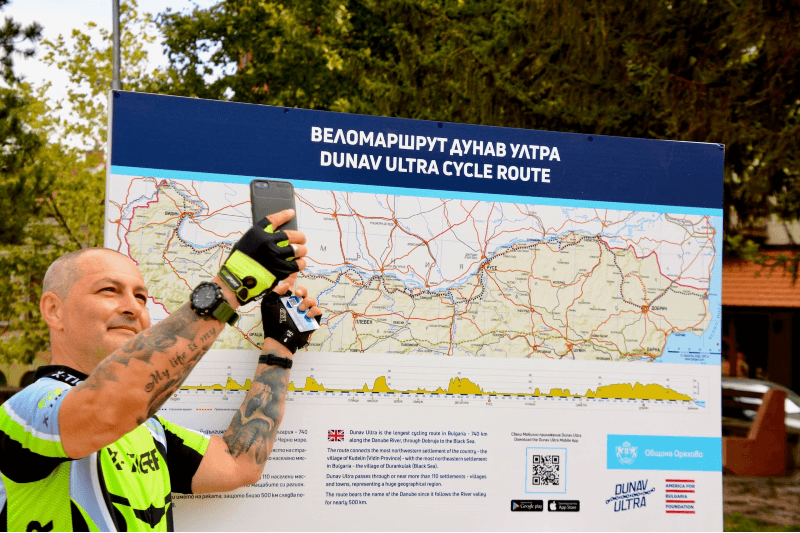
In this considerable endeavor, he is helped by a diverse skillset gained over the years and forward-looking individuals of all kinds: mayors and other local government officials, small business owners, people working in the public benefit, outsiders like him who see the potential of the place, and many locals who are happy that something is finally happening in their hometowns.
After eight years of working on Dunav Ultra, Boris may not know the Danube as a local does, but he sees the opportunities there more clearly than most. Visitors can uncover some of those opportunities by perusing The 100 Dunav Ultra Sights, a selection of the one hundred most interesting places to visit along the route, and by downloading the Dunav Ultra app, developed and promoted with help from the America for Bulgaria Foundation. The app is an indispensable companion in self-guided tours, offering maps of the Classical and Adventure route versions and recommendations about the best places to stay, eat, shop, and receive bike service. Visitors will find additional guidance through the information boards along the route, prepared by the team of Dunav Ultra with ABF support.
For his efforts to unite Danube communities in working on a national tourism product, Boris and Dunav Ultra received an Innovation of the Year award from the Bulgarian Ministry of Tourism in 2017. The quality of the product has been recognized by users as well, with the number of Dunav Ultra enthusiasts growing every year. Signups for the September cycling challenge reached capacity within just two weeks in 2021, and there have been nearly 800 downloads of the Dunav Ultra app since its launch in June.
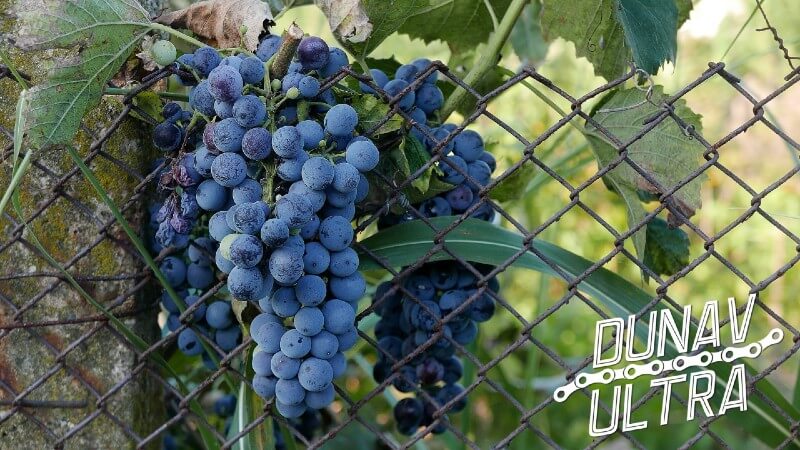
The greatest reward for Boris is seeing local communities embrace the idea and having them understand that they are what makes Dunav Ultra unique and, like the residents of Leskovets and Krushovene, act on it by starting their own businesses and local initiatives.
To meet demand for authentic local cuisine, a small fish restaurant opened doors in Svishtov last year. Volunteers and municipal workers in Nikopol renovated the area around the Fountain of Elijah, a beautiful second-century memorial immortalizing the love of a Roman noble for his late wife. Ordinary people along the entire Danube are opening their homes to visitors and proudly sharing their customs and history.
Although things are slowly moving in the right direction, there is still a lot of work to do, Boris says. Bringing communities together takes time and resources, but it’s worth it because “the project provides exposure for the whole region.”
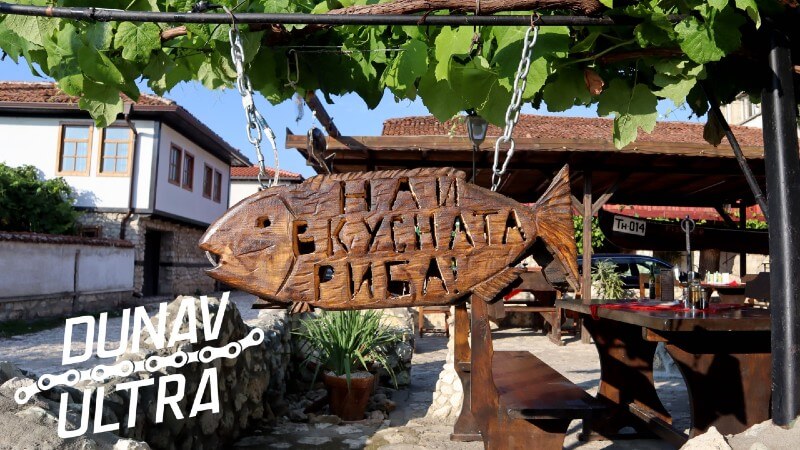
It is no coincidence that the project’s logo is a bike chain, a symbol of both cycling and the river’s continuous flow. Ensuring continuity in the Dunav Ultra experience is the strength of each chain plate, which stands in for every village, town, business, and cultural heritage monument along the route. “If one of the plates in the chain breaks, the whole thing stops working. Each link is important.” That is why it is vital for people to work together — like a well-oiled chain.
Boris loves telling the story of Radoslav, owner of the Han Madona guesthouse in the village of Falkovets, near Belogradchik, more than 30 miles from the Danube. Even though the village is not part of the Dunav Ultra route, Radoslav embraced the idea and serves Dunav Ultra beer at his establishment. He even had traditional Bulgarian beer mugs inscribed with the name of the cycling challenge to serve the brew in!
Boris finds it “gratifying to see that the Falkovets entrepreneur showed fantastic initiative and, by doing so, is helping a small business in Svishtov, without the Svishtov business owner even suspecting it… Unwittingly, Radoslav is also supporting the success of the Fountain of Elijah and the local community center in Nikopol. But you cannot trace or establish a direct link between those things… It is magic!”
